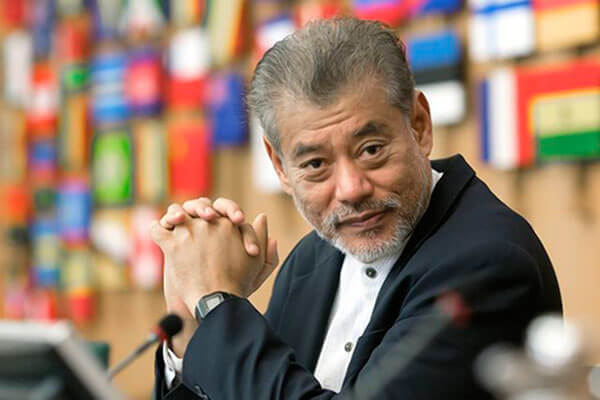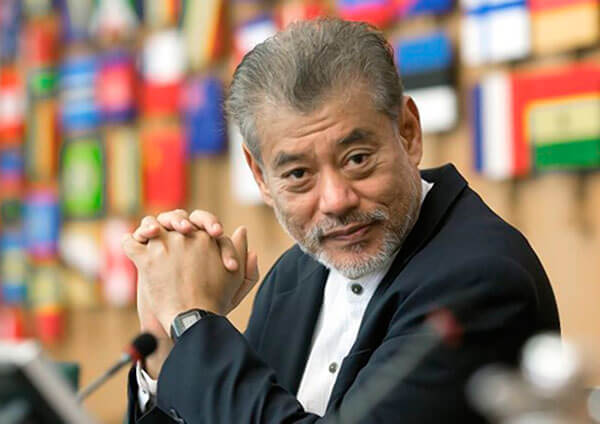ROME, Nov. 11, 2015 (IPS) – Slower economic growth since 2008, and especially with the commodity price collapse since the end of last year, threatens to reverse the exceptional half-decade before the financial crash when growth in the South stayed ahead of the North. From 2002, many developing countries – including some of the poorest– had been growing much faster after a quarter century of stagnation in Africa, for example.
But this has not been their delayed reward for sticking to policies prescribed by conventional wisdom as claimed by some latter-day apologists for the structural adjustment programmes of the last two decades of the 20th century. Instead, a more favourable international environment, including higher commodity prices, low interest rates and renewed aid flows, along with accelerated growth in China and India, have been the main reasons.
Recent trends need to be seen in a longer historical context if the right lessons are to be drawn. Economic growth in the 1980s and 1990s was generally slower than in the preceding two decades. But despite the spectacular growth of several developing countries, sub-Saharan Africa lost due to stagnation for more than two decades from the late 1970s and Latin America lost at least the 1980s.
Government policies from the 1980s – ostensibly to conform to ‘market expectations’ – often cut public spending on primarily social expenditures. As national-level inequalities grew in most countries from the 1980s, inter-national inequalities among countries continued to grow. Economic welfare in developing countries has been further squeezed by demographic pressures including rapid urbanization.
Nascent industrialization in many countries was aborted by structural adjustment and economic liberalization. Premature trade liberalization has thus exacerbated de-industrialization, unemployment and fiscal deficits without generating alternative sources of economic growth. Low income countries as well failed and failing states are generally characterized by modest industrialization which, in turn, retards structural transformation and more inclusive sustainable development.
The negative developmental implications of policies and programmes forced on developing countries, regardless of historical circumstance and economic context, are now well known. There is a world of difference between measured liberalization from a position of economic strength, as in newly industrialized East Asia from the 1980s, and their forced adoption, to meet World Trade Organization or loan obligations. Despite pious official rhetoric claiming the contrary, multilateral rules are far from supportive of sustainable development and need to be reformed accordingly.
Since the late 19th century, adverse terms of trade movements – favouring manufactures over primary commodities, temperate compared to tropical agricultural products, or manufactures from developed countries against those from developed countries – have meant that many developing countries have been producing and exporting much more, but earning relatively less from doing so.
International financial liberalization was supposed to attract private capital to fill financing gaps. But instead, it has resulted in net capital flows from the ‘capital poor’ to the ‘capital rich’, increased financial volatility and slower economic growth. Bitter experience has also shown that ‘shock therapy’ – often involving financial system ‘big bangs’ – has generally caused more harm than good.
Considering their greater vulnerability to external vicissitudes, developing countries must have greater fiscal space to ensure countercyclical capacity as well as sustained public spending for needed investments in physical and social infrastructure and human resources. Strengthening the tax base, ensuring more reliable sources of international finance and channelling aid through national budgets can be crucial.
Instead of the current fetish with eliminating fiscal deficits, a more balanced and appropriate approach to macroeconomic stabilization is needed, to minimize disruptive swings in economic activity and external balances, while fostering a virtuous cycle of greater macroeconomic stability, investment, growth and employment generation. Developing countries need to strengthen their capacities and capabilities and to ensure sufficient ‘policy space’ in order to pursue appropriate reforms favouring sustainable development.
It has often been claimed that development could only be attained through retrenchment of the state. In much of the developing world, however, this has left choice-less illiberal democracies and frustrated disenfranchised citizens. Instead, democratically accountable governments should consult widely among their citizens to promote investments for structural transformation and better employment.
The global economy now risks continuing its downward spiral into protracted stagnation. The International Monetary Fund’s improved surveillance mechanisms have not led to better international macroeconomic coordination, as touted. Instead, the path to sustainable development remains blocked by self-imposed deflationary policy constraints and a refusal to provide needed aid or to cooperate to increase taxation for all.
Jomo Kwame Sundaram is the coordinator for Economic and Social Development at the Food and Agriculture Organization and received the 2007 Wassily Leontief Prize for Advancing the Frontiers of Economic Thought.
























